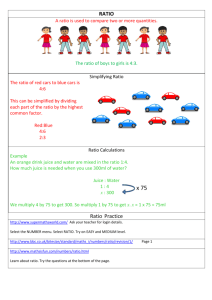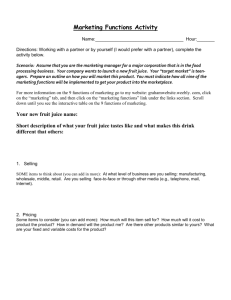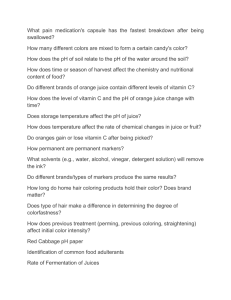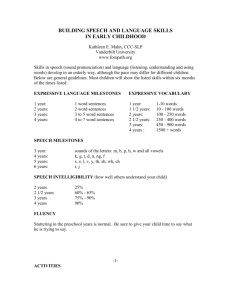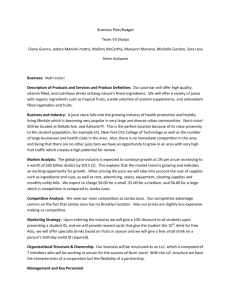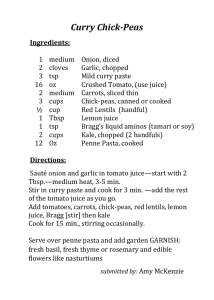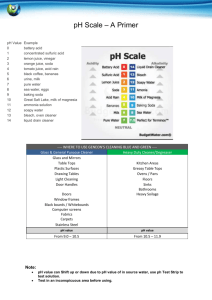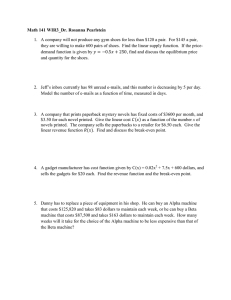Ben Jonson's Discoveries: Language & Writing Tips
advertisement
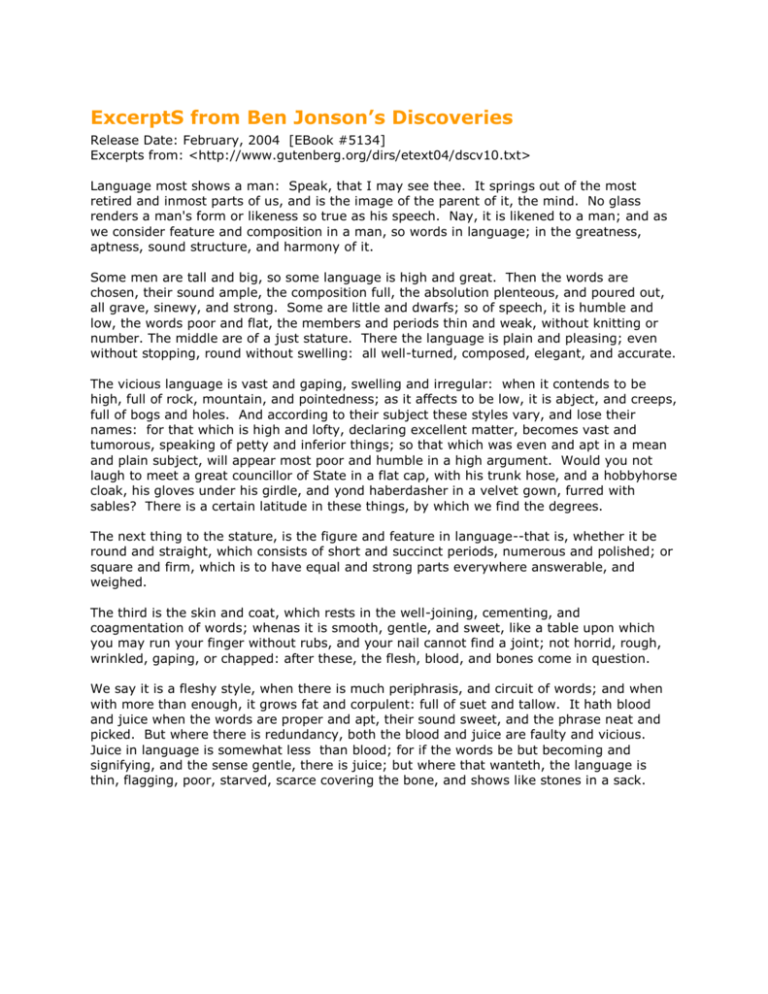
ExcerptS from Ben Jonson’s Discoveries Release Date: February, 2004 [EBook #5134] Excerpts from: <http://www.gutenberg.org/dirs/etext04/dscv10.txt> Language most shows a man: Speak, that I may see thee. It springs out of the most retired and inmost parts of us, and is the image of the parent of it, the mind. No glass renders a man's form or likeness so true as his speech. Nay, it is likened to a man; and as we consider feature and composition in a man, so words in language; in the greatness, aptness, sound structure, and harmony of it. Some men are tall and big, so some language is high and great. Then the words are chosen, their sound ample, the composition full, the absolution plenteous, and poured out, all grave, sinewy, and strong. Some are little and dwarfs; so of speech, it is humble and low, the words poor and flat, the members and periods thin and weak, without knitting or number. The middle are of a just stature. There the language is plain and pleasing; even without stopping, round without swelling: all well-turned, composed, elegant, and accurate. The vicious language is vast and gaping, swelling and irregular: when it contends to be high, full of rock, mountain, and pointedness; as it affects to be low, it is abject, and creeps, full of bogs and holes. And according to their subject these styles vary, and lose their names: for that which is high and lofty, declaring excellent matter, becomes vast and tumorous, speaking of petty and inferior things; so that which was even and apt in a mean and plain subject, will appear most poor and humble in a high argument. Would you not laugh to meet a great councillor of State in a flat cap, with his trunk hose, and a hobbyhorse cloak, his gloves under his girdle, and yond haberdasher in a velvet gown, furred with sables? There is a certain latitude in these things, by which we find the degrees. The next thing to the stature, is the figure and feature in language--that is, whether it be round and straight, which consists of short and succinct periods, numerous and polished; or square and firm, which is to have equal and strong parts everywhere answerable, and weighed. The third is the skin and coat, which rests in the well-joining, cementing, and coagmentation of words; whenas it is smooth, gentle, and sweet, like a table upon which you may run your finger without rubs, and your nail cannot find a joint; not horrid, rough, wrinkled, gaping, or chapped: after these, the flesh, blood, and bones come in question. We say it is a fleshy style, when there is much periphrasis, and circuit of words; and when with more than enough, it grows fat and corpulent: full of suet and tallow. It hath blood and juice when the words are proper and apt, their sound sweet, and the phrase neat and picked. But where there is redundancy, both the blood and juice are faulty and vicious. Juice in language is somewhat less than blood; for if the words be but becoming and signifying, and the sense gentle, there is juice; but where that wanteth, the language is thin, flagging, poor, starved, scarce covering the bone, and shows like stones in a sack. Jonson’s tips on good writing Brevitas. Now for fashion: it consists in four things, which are qualities of your style. The first is brevity; for they must not be treatises or discourses (your letters) except it be to learned men. And even among them there is a kind of thrift and saving of words. Therefore you are to examine the clearest passages of your understanding, and through them to convey the sweetest and most significant words you can devise, that you may the easier teach them the readiest way to another man's apprehension, and open their meaning fully, roundly, and distinctly, so as the reader may not think a second view cast away upon your letter. And though respect be a part following this, yet now here, and still I must remember it, if you write to a man, whose estate and sense, as senses, you are familiar with, you may the bolder (to set a task to his brain) venture on a knot. But if to your superior, you are bound to measure him in three farther points: first, with interest in him; secondly, his capacity in your letters; thirdly, his leisure to peruse them. For your interest or favour with him, you are to be the shorter or longer, more familiar or submiss, as he will afford you time. For his capacity, you are to be quicker and fuller of those reaches and glances of wit or learning, as he is able to entertain them. For his leisure, you are commanded to the greater briefness, as his place is of greater discharges and cares. But with your betters, you are not to put riddles of wit, by being too scarce of words; not to cause the trouble of making breviates by writing too riotous and wastingly. Brevity is attained in matter by avoiding idle compliments, prefaces, protestations, parentheses, superfluous circuit of figures and digressions: in the composition, by omitting conjunctions [not only, but also; both the one and the other, whereby it cometh to pass] and such like idle particles, that have no great business in a serious letter but breaking of sentences, as oftentimes a short journey is made long by unnessary baits. [Snip. Deleted sections here] [Discretio]. The last is, respect to discern what fits yourself, him to whom you write, and that which you handle, which is a quality fit to conclude the rest, because it doth include all. And that must proceed from ripeness of judgment, which, as one truly saith, is gotten by four means, God, nature, diligence, and conversation. Serve the first well, and the rest will serve you. For a man to write well, there are required three necessaries--to read the best authors, observe the best speakers, and much exercise of his own style; in style to consider what ought to be written, and after what manner. He must first think and excogitate his matter, then choose his words, and examine the weight of either. Then take care, in placing and ranking both matter and words, that the composition be comely; and to do this with diligence and often. No matter how slow the style be at first, so it be laboured and accurate; seek the best, and be not glad of the froward conceits, or first words, that offer themselves to us; but judge of what we invent, and order what we approve. Repeat often what we have formerly written; which beside that it helps the consequence, and makes the juncture better, it quickens the heat of imagination, that often cools in the time of setting down, and gives it new strength, as if it grew lustier by the going back; as we see in the contention of leaping, they jump farthest that fetch their race largest; or, as in throwing a dart or javelin, we force back our arms to make our loose the stronger.
